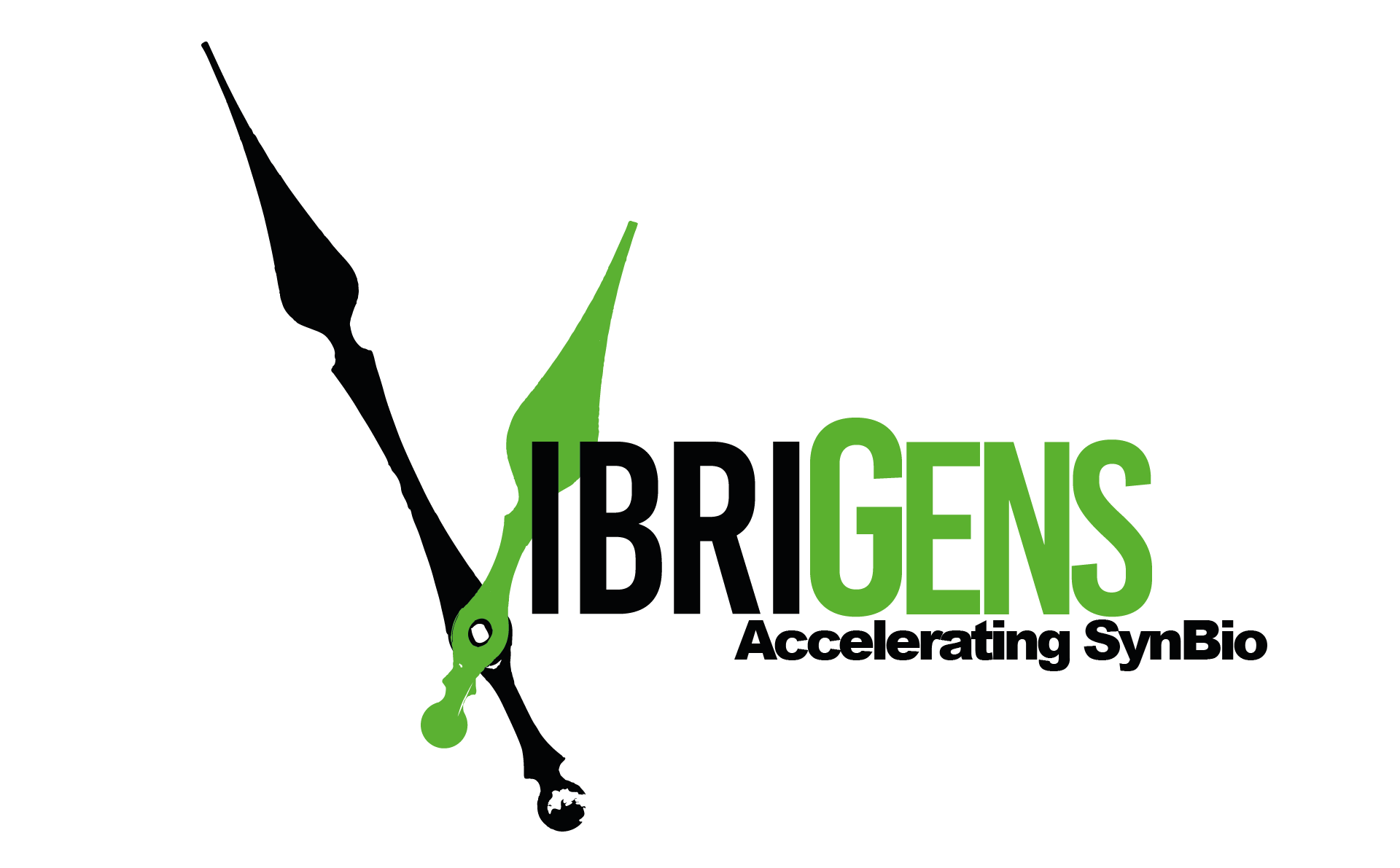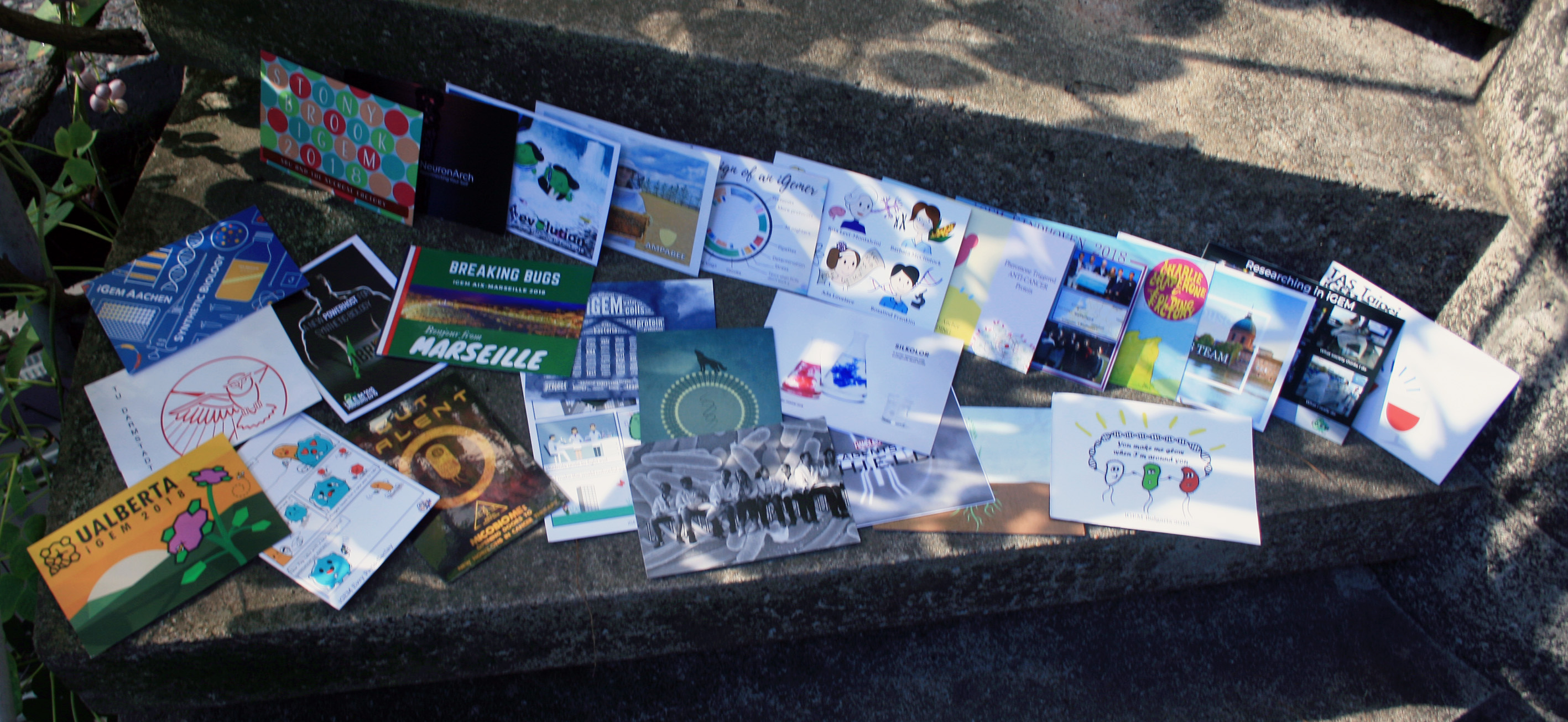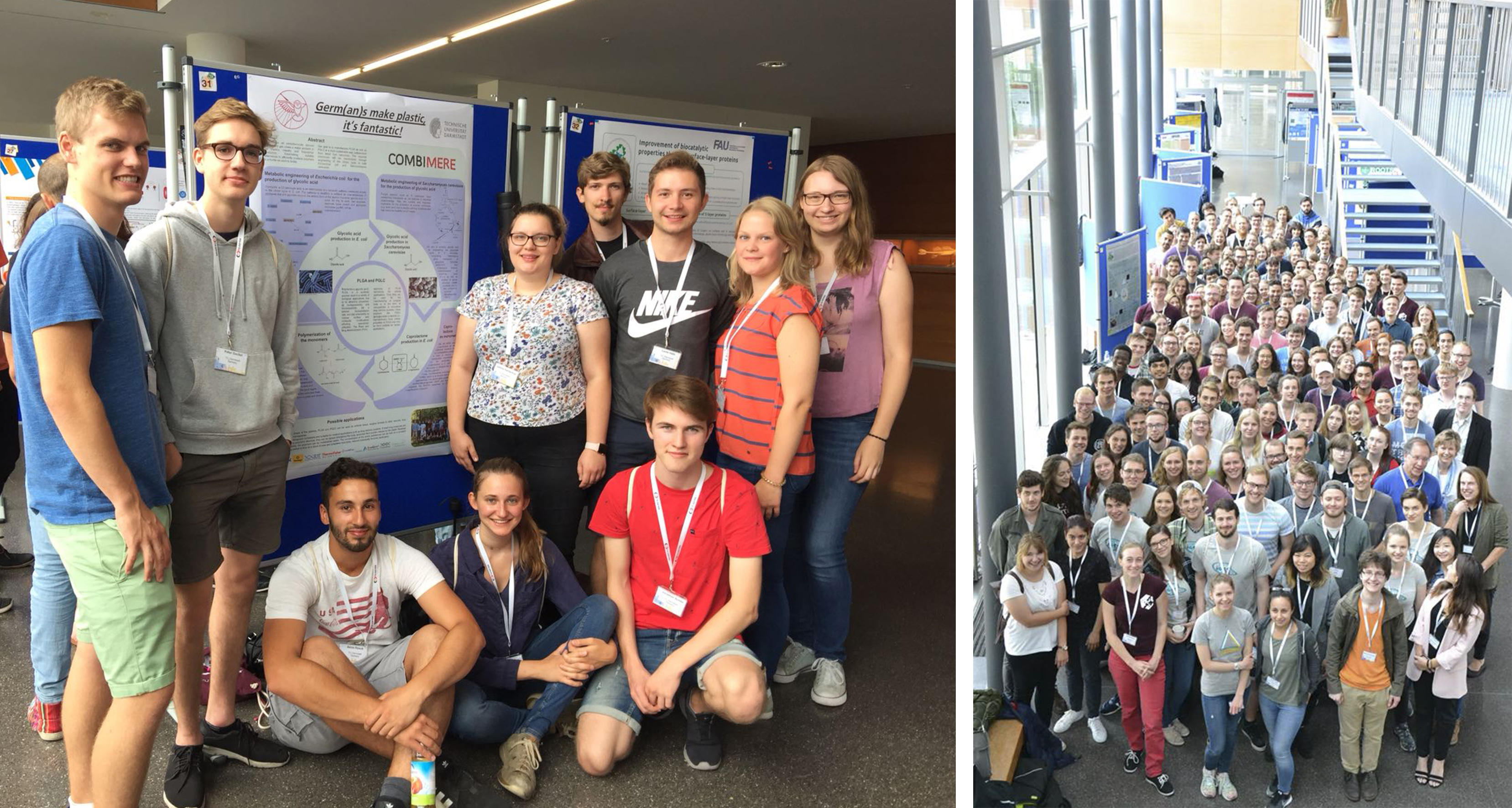Contents
Collaborations
iGEM Stuttgart
In 2017, iGEM TU Darmstadt worked with chitosan-producing and chitosan-modifying enzymes. This year’s iGEM team from the university of Stuttgart is working with chitosan, as well. In this context, iGEM Stuttgart contacted us asking for help and advice. Since, we were excited to hear of another team seeing the potential in chitosan as an antimicrobial coating, we were happy to help.
In agreement with our team members from 2017, we sent them the most relevant parts of the 2017 iGEM TU Darmstadt project. Stuttgart planned to produce chitosan in one single cell, using our chitin synthase (NodC) and chitin deacetylase (NodB). Based on the work and progress of our last year’s team, we could provide Stuttgart with helpful information concerning chitosan research. In particular, discussions with experts such as Prof. Dr. Moerschbacher helped us to recognize and tackle problems coming up during lab work. We recommended the team to contact him and other researchers.
Before the European Meetup, we had agreed on meeting the team there and answer questions, which were still unanswered in a personal conversation. During the Meetup we talked about the chitindeacetylase NodB and pointed out which difficulties we had come across during expression, purification and the assays. Also, we recommended them the kit Prof. Dr. Moerschbacher had suggested. Due to the problems with NodB inclusion bodies, we recommended them to use COD from Vibrio cholerae instead. The team appreciated our recommendation and focused their lab work more on the COD. We were especially curious how they would solve the inclusion body problem and many other issues we had encountered the year prior.
It was a great pleasure to collaborate with iGEM Stuttgart and we hope we were able to help them with their project.
iGEM Marburg
This year, the iGEM team of Marburg tries to establish the organism Vibrio natriegens as a new biological chassis for the iGEM community. They reached out to various other teams in an effort to standardize V. natriegens for labs all around the world.
In context of standardization of V. natriegens we repeated the InterLab study for iGEM Marburg with V. natriegens as chassis.
Here, cultures of the transformed V. natriegens showed decreased growth rates upon induction of protein synthesis but no fluorescence could be detected. Decreased growth rates indicate metabolic stress probably caused by protein synthesis. However, since no fluorescence could be detected no matured functional fluorogenic protein were built.
Yet, the organism shows many interesting features. We were especially fascinated by their incredibly fast growth rate of V. natriegens revealing a great opportunity for scientists to save time and work more efficiently.
It was a pleasure to work with this novel organism and share our obtained data. We were thankful for the opportunity to try out a new powerful organism and we are very interested in implementing V. natriegens in our everyday laboratory life.
iGEM NCHU Taichung
Yu-Hsuan from the iGEM team NCHU Taichung contacted us in June. She was in Darmstadt for a semester abroad. For her team it is the first year participating in the iGEM competition. Thus, we arranged a meeting to exchange project ideas and share our experiences over the years. Since our team was inspired to restructure after visiting iGEM Stockholm last year, we wanted to pass on our experiences on how to organize a team, how to choose a project and lots of other important structures they should be aware of.
During Yu-Hsuan’s visit we talked about how we run our laboratory and which positions we have, e.g. our lab leader, who mainly organizes the lab and takes care of the orders, and our lab group leaders. The lab group leaders in turn are the ones who organize four to five members and work together on one subproject for the whole project.
Also, she asked us how we organize our fundraising. There are two possibilities for sponsoring: financial support or donations in kind. Due to the fact that Merck KGaA sponsors us every year, we usually focus on the latter. For financial support we set up letters very early every year and send these to possible sponsors. We suggested to the team to already do this for next year’s competition.
The last topic she was interested in was concerning the team structure and how we organize a team of about 30 members. For our three student team leaders it is all about communication with the members, the lab groups, the lab leader, last year’s members and our instructing professor. The team leaders must stay on top of things and arrange duties clearly to avoid two people working on the same task.
We hope the team can profit from our advices just like we did last year from iGEM Stockholm and wish them the best of luck for their first year at the Jamboree!
iGEM Düsseldorf
Over the years, it has become a pleasure for us to design postcards and send these to Düsseldorf. They collect them from many iGEM teams and send these to all teams designing a postcard. It is always great fun to see how other teams designed their postcards.
Thank you, Düsseldorf for spending time organizing the opportunity to exchange information about the teams’ projects in a fun and innovative manner. As always it was a pleasure for us!
Have a look at all the postcards!
German and European Meetup
Again this year, iGEM TU Darmstadt was part of the German Meetup (Marburg, June) and the European Meetup (Munich, July). During both meetups we enjoyed having poster sessions, exchanging project ideas, finding possible collaborations and hearing talks of experts in the field of synthetic biology.
Meetups are a great opportunity for us to present our project to a broad and interested audience, to get in contact with other iGEM teams and as a preparation for the poster sessions in Boston. Discussions about our project were very helpful to obtain other perspectives concerning our project and gaining a lot of impressions and ideas on how to improve our project.
Therefore, we thank Marburg and Munich for hosting and organizing these meetups. It was a pleasure to participate and to learn a lot from the other teams.





